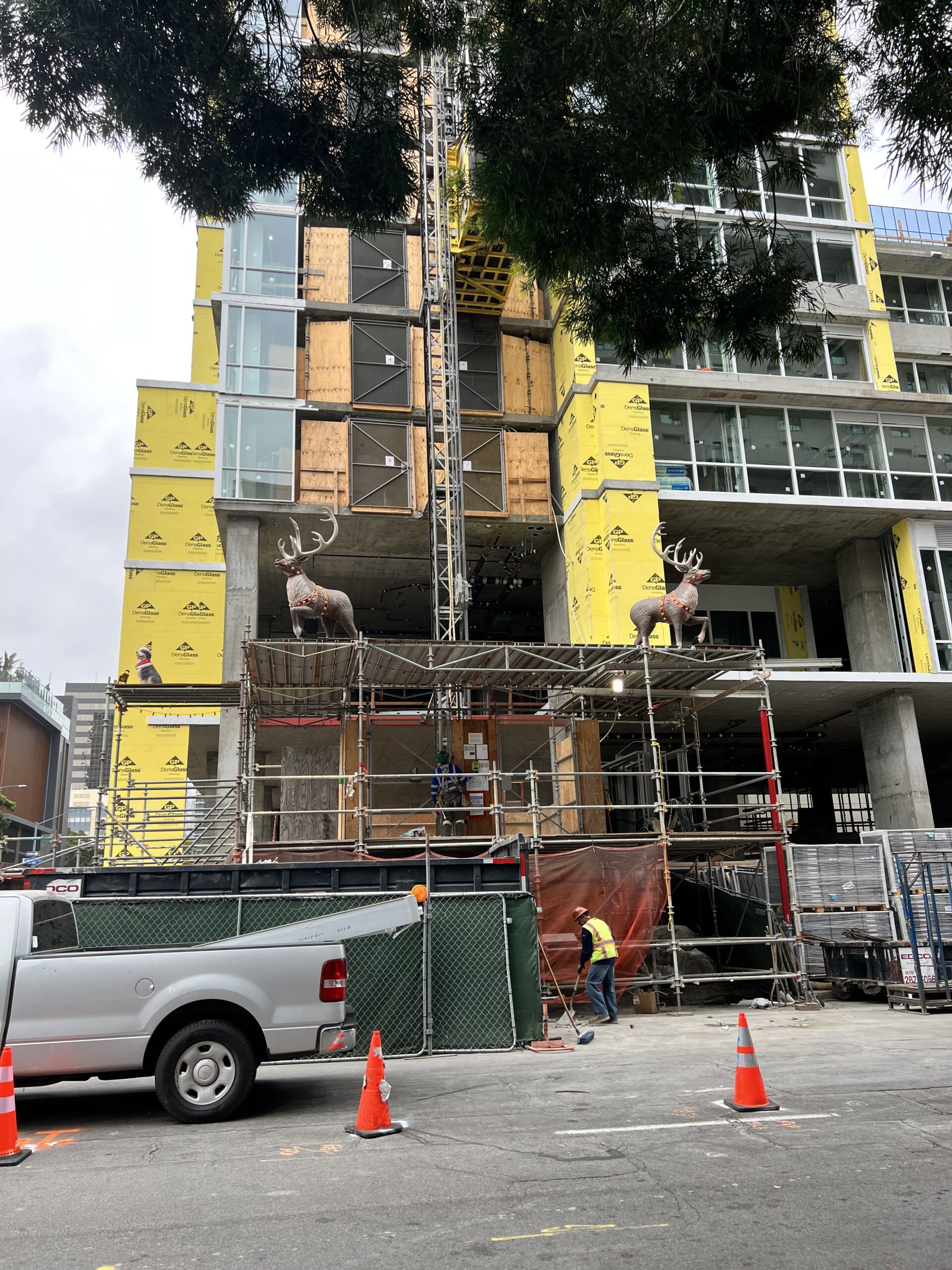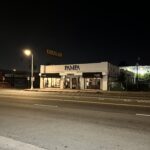It was getting hotter.
Frank May got off his mat and padded over to look out the window. Umber stucco walls and tiles, the color of the local clay. Square apartment blocks like the one he was in, rooftop patios occupied by residents who had moved up there in the night, it being too hot to sleep inside. Now quite a few of them were standing behind their chest-high walls looking east. Sky the color of the buildings, mixed with white where the sun would soon rise. Frank took a deep breath. It reminded him of the air in a sauna. This the coolest part of the day. In his entire life he had spent less than five minutes in saunas, he didn’t like the sensation. Hot water, maybe; hot humid air, no. He didn’t see why anyone would seek out such a stifling sweaty feeling.
Here there was no escaping it. He wouldn’t have agreed to come here if he had thought it through. It was his home town’s sister city, but there were other sister cities, other aid organizations. He could have worked in Alaska. Instead sweat was dripping into his eyes and stinging. He was wet, wearing only a pair of shorts, those too were wet; there were wet patches on his mat where he had tried to sleep. He was thirsty and the jug by his bedside was empty. All over town the stressed hum of windowbox air conditioner fans buzzed like giant mosquitoes.
And then the sun cracked the eastern horizon. It blazed like an atomic bomb, which of course it was. The fields and buildings underneath that brilliant chip of light went dark, then darker still as the chip flowed to the sides in a burning line that then bulged to a crescent he couldn’t look at. The heat coming from it was palpable, a slap to the face. Solar radiation heating the skin of his face, making him blink. Stinging eyes flowing, he couldn’t see much. Everything was tan and beige and a brilliant, unbearable white. Ordinary town in Uttar Pradesh, 6 AM. He looked at his phone: 38 degrees. In Fahrenheit that was — he tapped — 103 degrees. Humidity about 35 percent. The combination was the thing. A few years ago it would have been among the hottest wet-bulb temperatures ever recorded. Now just a Wednesday morning.
Wails of dismay cut the air, coming from the rooftop across the street. Cries of distress, a pair of young women leaning over the wall calling down to the street. Someone on that roof was not waking up. Frank tapped at his phone and called the police. No answer. He couldn’t tell if the call had gone through or not. Sirens now cut the air, sounding distant and as if somehow submerged. With the dawn, people were discovering sleepers in distress, finding those who would never wake up from the long hot night. Calling for help. The sirens seemed to indicate some of the calls had worked. Frank checked his phone again. Charged; showing a connection. But no reply at the police station he had had occasion to call several times in his four months here. Two months to go. Fifty-eight days, way too long. July 12, monsoon not yet arrived. Focus on getting through today. One day at a time. Then home to Jacksonville, comically cool after this. He would have stories to tell. But the poor people on the rooftop across the way.
Then the sound of the air conditioners cut off. More cries of distress. His phone no longer showed any bars. Electricity gone. Brownout, or blackout. Sirens like the wails of gods and goddesses, the whole Hindu pantheon in distress.
Generators were already firing up, loud two-stroke engines. Illegal gas, diesel, kerosene, saved for situations like these, when the law requiring use of liquid natural gas gave way to necessity. The air, already bad, would soon be a blanket of exhaust. Like breathing from the exhaust pipe of an old bus.
Frank coughed at the thought of it, tried again to drink from the jug by his bed. It was still empty. He took it downstairs with him, filled it from their filtered tank in the refrigerator in the closet there. Still cold even with power off, and now in his thermos jug, where it would stay cold for a good long while. He dropped an iodine pill in the jug for good measure, sealed it tight. The weight of it was reassuring.
Kim Stanley Robinson, The Ministry for the Future
Hannah surprised me with a trip out to Joshua Tree back in March as a consolation trip since we couldn’t make it up to the Bay in February for her birthday. (Yes, she planned a trip for me to make up for missing her own birthday. I don’t deserve this woman.) Every time we make it out there we have to hit up Space Cowboy, JT’s only bookstore and truthfully the only one you’d need. Jean-Paul always hooks it up according to the whims of my reading list, and Hannah having hipped him to my current KSR kick he sent me on my way with The Memory of Whiteness, the three volumes of the Science in the Capital series and his latest novel, 2020’s The Ministry for the Future. As much as I love reading chronologically, I couldn’t resist jumping straight into KSR’s predictions given the novel’s action opens in 2025. Robinson makes more than a few eerie calls — “it was not really a surprise when a day came that sixty passenger jets crashed in a matter of hours. All over the world, flights of all kinds…” — let’s hope the cataclysmic flooding and heat waves give us a little time!
And some more bummer ecology, this time courtesy of Big Boy Ballard:
A drastic increase in a wide range of plant diseases was noticed in the southern states of America and in the Kazakhstan and Turkmenistan republics… All over Florida there were outbreaks of blight and mosaic disease, orange plantations withered and died, stunted palms split by the roadside like dried banana skins, saw grass stiffened into paper spears in the summer heat. Within a few years the entire peninsula was transformed into a desert.
“The Cage of Sand,” 1962
The worldwide drought now in its fifth month was the culmination of a series of extended droughts that had taken place with increasing frequency all over the globe during the previous decade. Ten years earlier a critical shortage of world foodstuffs had occurred when the season rainfall expected in a number of important agricultural areas had failed to materialize. One by one, areas as far apart as Saskatchewan and the Loire valley, Kazakhstan and the Madras tea country were turned into arid dust basins. After two years these farmlands were totally devastated…
Covering the offshore waters of the world’s oceans… was a thin but resilient mono-molecular film formed from a complex of saturated long-chain polymers, generated within the sea from the vast quantities of industrial wastes discharged into the ocean basins during the previous fifty years. This tough, oxygen permeable membrane lay on the air-water interface and prevented almost all evaporation of surface water in the air space above…
Millions of tons of highly reactive industrial wastes — unwanted petroleum fractions, contaminated catalysts and solvents — were still being vented into the sea, where they mingled with the wastes of atomic power stations and sewage schemes. Out of this brew the sea had constructed a skin no thicker than a few atoms, but sufficiently strong to devastate the lands it once irrigated.
The Drought, 1965
Fish? There isn’t a single fish alive on the entire planet. The whole zoological class died out ten years ago.
“Deep End,” 1961
It’s always been assumed that the evolutionary slope reached forever upwards, but in fact the peak has already been reached, the pathway now leads downwards to the common biological grave. It’s a despairing and at present unacceptable vision of the future, but it’s the only one.
“The Voices of Time,” 1960




Leave a Reply to Plan B – Christian Molenaar Cancel reply